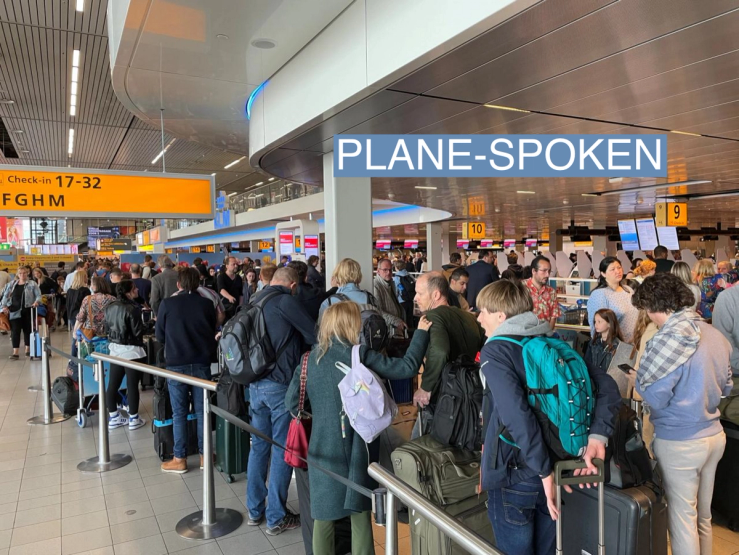The News
Amsterdam’s Schiphol Airport, like many of the world’s busiest travel hubs, did not have a good 2022. Even the company that runs the airport agrees.
A refreshingly honest press release Friday from the Royal Schiphol Group was simply titled: “Schiphol closes a poor 2022.”
It featured this quote from CEO Ruud Sondag: “Never before in Schiphol’s history have we disappointed so many travellers and airlines as in 2022. ... 2022 will therefore go down as a bad chapter in our own history books.”

In this article:
Know More
The poor performance was reflected is subpar financial results, according to the company’s annual report. “Today, 17 February 2023, Royal Schiphol Group publishes poor financial results for 2022,” the company’s press release said.
To recover from “operational issues,” it incurred extra costs of 120 million euros, leading to an overall loss of 28 million euros last year.
Like every other large international airport, Schiphol saw an uptick in traffic in 2022 compared to 2021. Over 52 million passengers passed through, more than double the number in 2021. Still, it was less than its pre-pandemic capacity: 71.7 million passengers went through Schiphol in 2019.
The return of passengers was coupled with a staffing shortage at the airport, leading to lines that snaked even outside the airport. In September, Schiphol said it was capping the number of travelers departing from the airport.
In another brutally honest press release, the company said it did so “after consulting with airlines, which are not happy about it.”
They were right about that — KLM, the Dutch airline with a hub at Schiphol, called it a “hopeless situation, lacking any perspective.”
The long lines had an affect on the company’s bottom line. “Schiphol incurred further costs in settling passenger claims received from passengers who were at the airport on time but missed their flight due to an exceptional waiting time at security control,” the annual report stated.
The Royal Schipol Group, which is partly owned by the Dutch Ministry of Finance and the city of Amsterdam, also owns the airports in Rotterdam and other smaller cities.
The View From London
London’s Heathrow Airport also made headlines last summer for being a center of travel chaos. It also imposed traveler capacity caps, and its CEO acknowledged “unacceptable” levels of service.
The operator of the airport adopted a rosier tone in its financial report covering the first nine months of 2022: It said the “vast majority of Heathrow passengers had good service this summer,” and, “Our balance sheet remains robust despite losses.”
Those losses totaled 400 million pounds.
The View From Toronto
Toronto’s Pearson Airport ranked No. 1 in the world for delays for most of the summer, according to FlightAware. As a sign of how bad things had become, a headline in Complex Canada read: “Toronto’s Pearson Airport Is Such a Nightmare That ‘The New York Times’ Wrote About It.”
Polling found that as many as 70% of Canadians felt the country should be ashamed on the global stage over the airport fiasco.
The airport hasn’t released an annual report for 2022 yet, but in a report for investors covering the first nine months of the year, it was somewhat candid about the challenges it faced, acknowledging “long lines for pre-boarding security screening.”
Pearson didn’t take all the blame for the issues, though. The report also mentioned “last minute flight cancellations by air carriers” and “poor on-time performance of the world’s airlines.”
Still, it generated a net income, the report showed.

